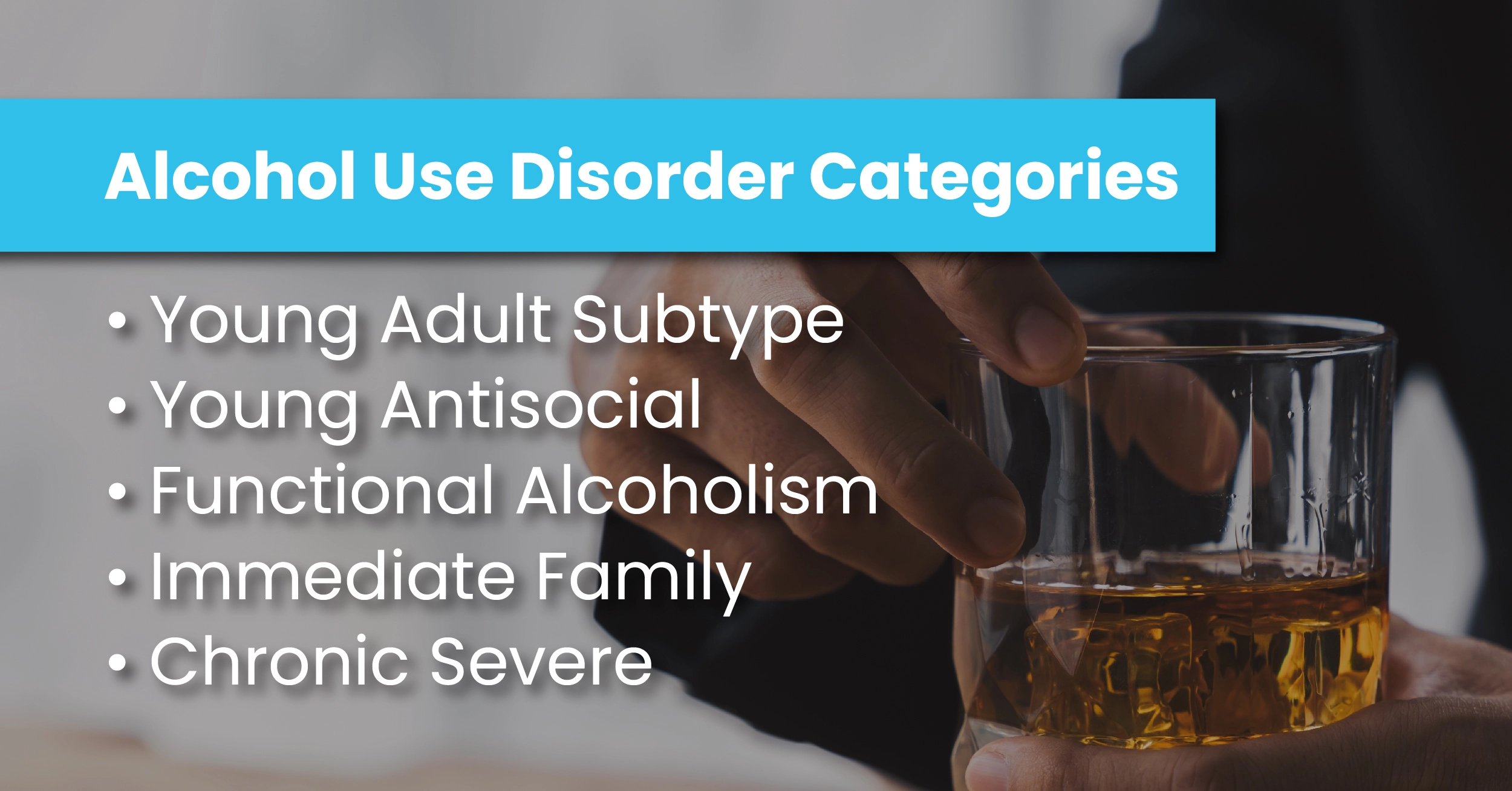Am I an Alcoholic?
If you are worried that you might have a drinking problem and often wonder if you drink too much or are an alcoholic, this article is designed to provide you with the insights you need. The goal of this guide is to help you have a better understanding of your drinking patterns and whether or not they point to an underlying issue.
Understanding the signs and symptoms of problematic drinking allows individuals to make more informed decisions and seek support as soon as possible if needed. We aim to offer guidance and support along your path to a healthier life.

What is Alcohol Use Disorder?
Individuals with alcohol use disorder (AUD) will often display an unhealthy reliance on alcohol as a way to regulate their emotional state and find relief. AUD is characterized by the individual having an impaired ability to stop or limit their consumption of alcohol despite the negative consequences their drinking habits bring.
Despite the common use of the term “alcoholic,” this is not a recognized term by healthcare professionals and experts in the field and is not officially endorsed. Alcohol use disorder is typically the concept that a diagnosis and treatment are based upon.
AUD is classified into three groups:
- Mild alcohol dependence
- Moderate alcohol dependence
- High alcohol dependence
Symptoms outlined in the Diagnostic Statistical Manual of Mental Disorders (DSM-V) are used to diagnose patients with alcohol use disorder. If multiple symptoms show in the past year, it indicates the severity of your AUD.
Comparing Your Drinking Habits to Alcohol Use Disorder
If you feel you may be struggling with a dependence on alcohol, continue reading to learn more about evidence-based treatment options such as therapy, medication, and support groups.
It is important to note that while this guide can help you recognize you have a problem, it is not a substitute for an official diagnosis from a healthcare professional.
Heavy Drinking vs. Binge Drinking
When identifying potential health risks and implications associated with the different patterns of drinking, it is essential to understand the nuances of alcohol consumption.
While heavy drinking and binge drinking both involve a consumption of alcohol that exceeds recommended limits, they have their own unique frequency, quantity, and potential health risks.
Heavy drinking is about how much you drink during a one-week period, while binge drinking is how much you drink within a few hours.
For men, heavy drinking is considered drinking 14 or more alcoholic drinks per week, and 7 or more for women. This level of drinking over time can significantly increase the risk of developing an alcohol use disorder and could cause health conditions like liver disease or cardiovascular issues.
Binge drinking is described as the rapid intake of a large quantity of alcohol within a short period of time, resulting in a blood alcohol concentration (BAC) of 0.08 grams percent or higher. This drinking pattern often involves episodes where men consume 5 or more drinks, and women consume 4 or more drinks within a time frame of about 2 hours. The negative effects of binge drinking can include alcohol poisoning, accidents, injuries, and severely impaired cognitive abilities. The risk of developing an AUD is also significantly increased with this level of drinking.
By defining the specific characteristics and potential consequences of heavy and binge drinking patterns, individuals can grow a heightened awareness of responsible alcohol consumption.
Signs of Alcohol Use Disorder
Although someone may consume an excessive amount of alcohol, this does not automatically mean they have an alcohol use disorder or dependency. There are certain signs an individual will display when struggling with AUD.
Excessive drinkers can often decide to quit and move on to a healthier life with more energy, while those with AUD have a harder time stopping their consumption of alcohol as they have developed an emotional, psychological, or physical dependence on alcohol.
If you believe that you or a loved one has a severe dependency on alcohol, watch out for the following signs of alcohol use disorder.
- Continuing to drink despite negative consequences
- Experiencing withdrawal symptoms
- Losing interest in non-drinking activities
- Putting drinking before responsibilities
- Loss of control of their alcohol consumption
- Having cravings for alcohol
- Drinking in secret
Find treatment for alcohol use disorder by speaking with a health professional.
Alcohol Withdrawal Symptoms
When an individual with a dependence on alcohol suddenly stops drinking, they will begin to experience withdrawal. The symptoms of withdrawal will arise as the body and brain work to readjust to functioning without alcohol. The severity of alcohol withdrawal will depend on the severity of their condition and other factors like their history of drinking.
Below are common symptoms of withdrawal.
- Tremors
- Anxiety
- Nausea and vomiting
- Headaches
- Sweating
- Increased heart rate
- Increased blood pressure
- Agitation
- Confusion
- Hallucinations
- Seizures
Symptoms can progress over time if the individual is not treated for alcohol use disorder. Seeking medical guidance and support as soon as possible if you are experiencing any symptoms is key to an increased chance of a successful recovery.
Short and Long Term Effects
Over a short period of experiencing alcohol use disorder, individuals may experience various effects that significantly impact their physical and mental well-being. The condition can also begin to cause issues in relationships with friends, family, or responsibilities at work.
Below are the short-term effects of AUD.
- Impaired judgment and coordination
- Memory issues
- Digestive issues
- Changes in mood
- Risking behavior
- Accidents and injuries
- Violence
- Miscarriages, stillbirths, and fetal alcohol disorders
- Unintended pregnancy and sexually transmitted disease
In the long term, alcohol use disorder can contribute to the development of severe health conditions like liver disease, cardiovascular issues, and neurological disorders.
Below are the long-term effects of AUD.
- Liver disease
- Cardiovascular issues
- Neurological Impairment
- Mental health disorders like anxiety or depression
- Cancers of the liver, throat, colon, breast, esophagus and mouth
- Weakened immune system
- Persistent problems at work, home, or personal relationships
The long-term effects of AUD emphasize the critical importance of early intervention and comprehensive addiction treatment. Contact us to learn more about our treatment services.
Alcohol Use Disorder Categories
Individual experiences and habits related to alcohol consumption are broken into 5 groups to allow for a more practical form of treatment. Upon completing the alcoholic survey, you can see how these experiences resonate with your relationship with drinking.
Young adult subtype: This subtype of alcoholism typically involves individuals who develop alcohol use disorder in their early 20s. People of this subtype usually do not have any other psychiatric disorders and engage in impulsive behavior. This makes up 30 percent of people addicted to alcohol in the United States.
Young antisocial: Individuals in this category often have a long history of antisocial behavior as well as impulsive actions. They will often exhibit symptoms of conduct disorder during their childhood, leading to a higher risk of developing AUD.
Functional alcoholism: Many individuals in this category are reluctant to acknowledge the extent of their drinking habits, originate from stable familial backgrounds, and maintain successful employment with a commendable level of accomplishment. Approximately 20 percent of individuals diagnosed with AUD in the US fall into this classification.
Immediate family: This involves individuals who have a history of alcoholism, mood disorders, or mental health conditions. People in this category typically struggle to hold down jobs and often experience intense depression.
Chronic severe: Individuals of this subtype often begin drinking at an early age and may have a long history of alcohol dependence. They often experience severe psychiatric or mental health disorders that require treatment.
Find Treatment for Alcohol Use Disorder at The Haven Detox
At The Haven Detox, you can find a comprehensive range of evidence-based treatments and around-the-clock support from an experienced medical staff. We offer an approach that is tailored to your specific needs for recovery to create the most effective program for treatment.
With a combination of individual counseling, such as cognitive behavioral therapy (CBT), and medication, you can successfully recover from alcohol use disorder. We offer a residential level of treatment where patients live in our comfortable dorms with access to our many amenities.
It’s crucial to thoroughly assess the root causes of your drinking and consult healthcare experts to explore the most suitable treatment avenues promptly.
Use the insights you have gained from this guide and reach out to a healthcare provider to adequately diagnose your condition. Contact The Haven Detox-Little Rock at (501) 271-3342 to learn more about our services. Our team of friendly counselors are available 24/7 to answer your questions.




